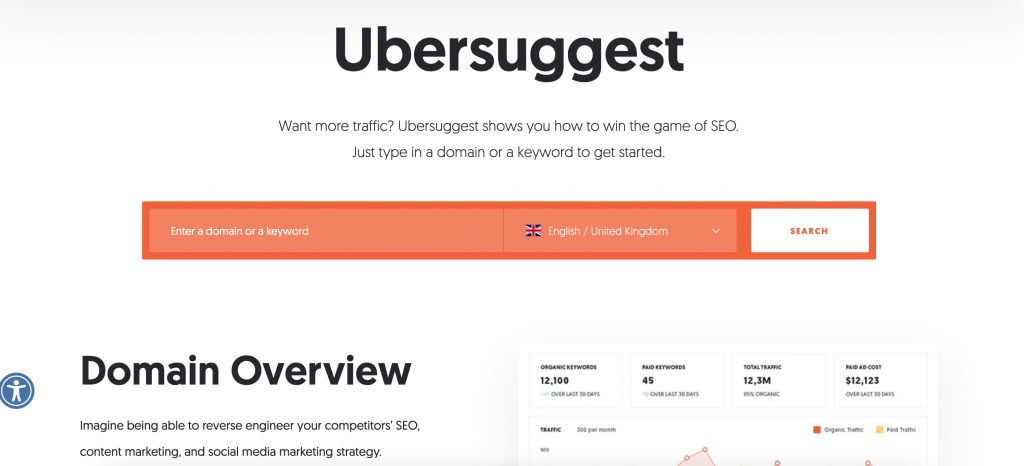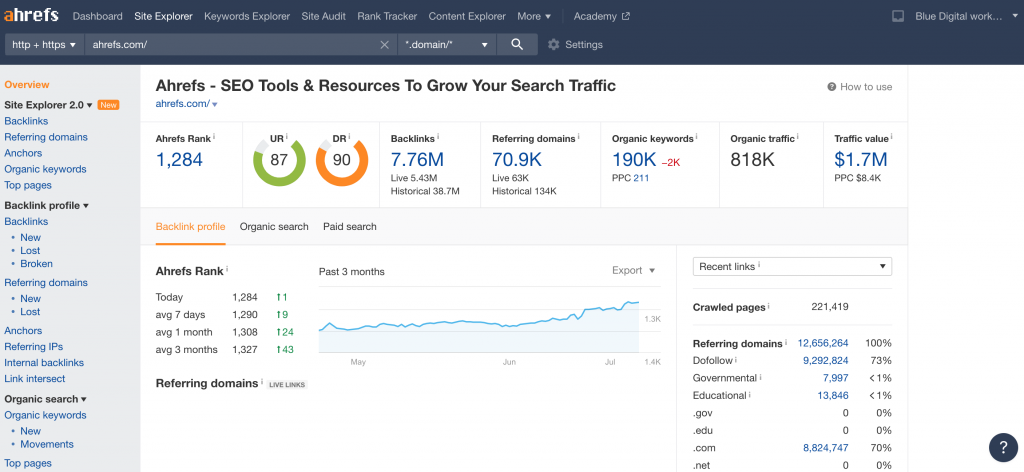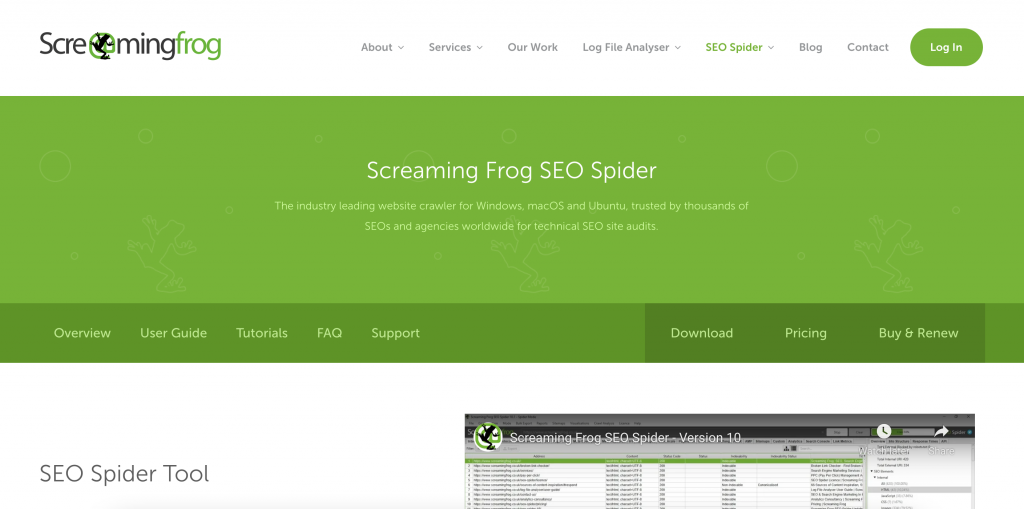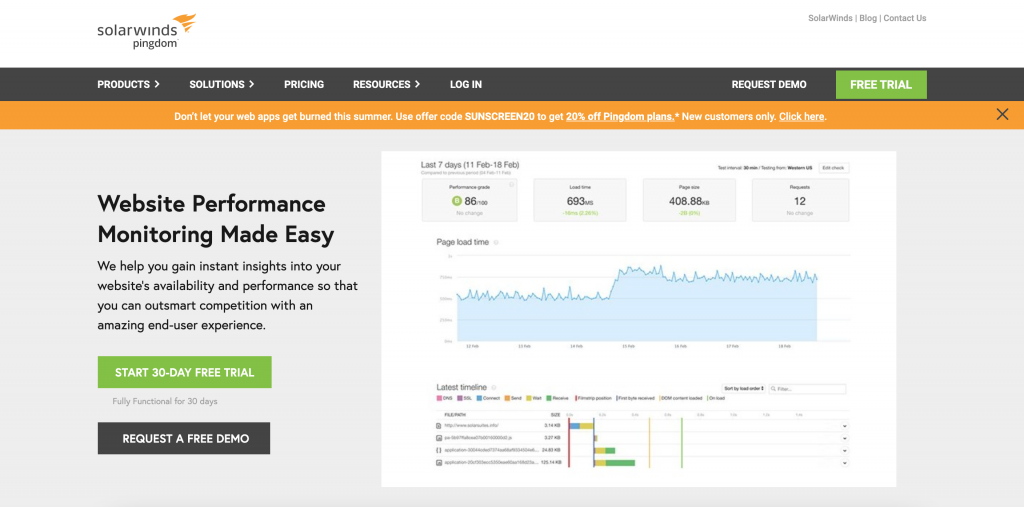How to create the perfect SEO audit
An SEO audit is the first thing that should be conducted in order to assess the strength of your website. Whether it’s to pitch to a client, or for internal use, SEO audits should look at site speed, backlinks, keywords and more in order to build a meaningful SEO strategy.
SEO audits differ from business to business, however the key focus points should always be the same – competitor research, crawling and indexing, accessibility, link analysis, keyword analysis, content evaluation, on-page optimisation and site architecture.
In this blog, we’ll discuss what makes a great SEO audit and share tips on how to ensure the necessary information is included within your research.
Use competitor research within your audit
This is something that is often overlooked but plays a crucial part of your audit. By comparing a website to that of a competitor, you’ll be able to compare metrics and adapt your strategy accordingly.
For example, if you are researching how to optimise link strategy, make sure to look at competitors’ backlinks and referring domains in order to see missed link opportunities. You can also check what keywords a competitor is ranking for, and their search volumes. Any keywords you might have be missed can then be used to inform content opportunities.
Use multiple tools to conduct your audit
There are a large range of online resources that you can use to help to build an SEO audit. Different tools allow you to uncover different results based on what you are researching. Here are some of our favourites of ours:
- UberSuggest
The first tool we use is UberSuggest. This tool was created by Neil Patel, and initially was a keyword planning tool. However, in recent times, Patel has developed this tool to be a fantastic site crawling tool. This FREE (yes, free!) resource is fantastic as it sets out a range of different fixes that you can perform in order to improve your websites SEO score.

- Ahrefs
Potentially one of the most popular digital marketing tools, Ahrefs is fantastic for finding data to include in your audits. This tool is amazing at looking into your backlinks, referring domains, top performing pages, top performing keywords and much more. Ahrefs now also includes other analysis tools, such as content explorer, and even a keyword explorer, so you can check out what content opportunities you are missing, and which keywords you should be targeting.
This tool is most commonly used for backlink strategy improvements, and ties in well with the first point in this article, which is to include competitor research. If you or your client has a low amount of referring domains or backlinks directing to their site, and the most relevant competitor has 1,000 more, you can identify improvement areas.

- Screaming Frog
Another highly popular marketing tool, the Screaming Frog Spider Tool crawls your website and gathers an array of information that is relevant to on-site and technical SEO. Screaming Frog is fantastic for pulling through technical data that can be optimised for better performance within the search engine results pages, such as metadata.
The data received can be intimidating, however once you have had a look around the software you will soon realise it’s very easy to navigate. This fantastic tool gives you great information, such as page titles, meta descriptions, canonicals, image optimisation opportunities, and even 404 pages.

- Pingdom or Google Speed Tests
A crucial element to SEO audits is site speed, as poor site speed can cause huge issues with your SEO score. We like to use Pingdom or Google’s own speed test to conduct our research. You want to take a look at both desktop and mobile site speed, as they both play an important role in performance.
The great thing about these tools is that it gives you recommendations on how to fix your site speed if it is bad; You can pass these recommendations onto your development team in order to implement.
Of course, these are only a few of many tools we use to conduct our research to include in our SEO audits, however we have found these to be the most useful. The great thing about using different tools is that they all bring up different issues that other tools may not pick up on.
For example, a crawl of a client’s site on Screaming Frog shown that there was only four 404 pages, however UberSuggest picked up on over 50 404 pages. Therefore, it is extremely important to use multiple tools.

Make sure to include solutions
A lot of SEO audits tend to only include the issues, and never the solution. I have noticed a lot of audits will include issues to do with meta descriptions, or maybe site speed, or even canonical, but you should also include the solution that is needed in order to fix this problem.
For example, if there is an issue with the site speed, make sure to include the issues that the site has, and then write what you are going to do to improve and solve them. By doing this, you are gaining trust from your client to show that you have the capabilities to perform the solution tasks.
Stop trying to bulk out your SEO audits
There is nothing worse than reading an SEO audit that is full of pointless information in order for the pages to be longer. This is a waste of time for both you, and the party you are giving the audit to. The best thing to do is to keep it straight to the point; find the issues, explain what it is, why it’s important, and how to fix the issue. By sticking to a simple what, why and how approach, you are covering everything that is needed for the client and showing an understanding of issues without waffling on. Ensuring you are thorough but straight to the point will allow you to always be on track to what is important for the client; which is how can you improve their SEO.
These are just a few of our tips on how to create the ultimate SEO audit for your clients or yourself. By following these simple but effective tips, we are sure you will be on your way to creating fantastic audits which will impress anybody you are presenting it to.
If you’d like any help with your SEO strategy, or would like to get your own SEO audit, contact us today or call on 0113 237 5100.
